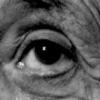Personally I think it's important for antagonists to have flair, style, something to offset them from just being disgusting.
- Tradition-focused is one kind of villain style, it works well for bigots, vampires, paladins and other knights, and people you want to do a heel-face-turn in the middle of the story after realizing they have been seriously misled by their elders/superiors/religion. They generally complement a main character who is some kind of creative eccentric, free-thinker who can't fit in, person with a vision for the future, etc.
- Emo is another kind of villain style - this is the villain with abuse in their past, might be a halfbreed or a mutant or a minority, who started using force and not trusting anyone out of self-defense, and probably has no friends and a lack of social skills. These characters are also good candidates for a heel-face-turn if you have a main character who is thematically aligned with love or friendship.
- Mad scientist is a third kind. Personally I prefer the comical ones, that come up with some kind of complex plan or high-tech gizmo but often end up fouling up their own plans without the main character's intervention. The seriously dangerous ones are kind of a different trope, more on the horror genre side of things.
- The ridiculously talented spoiled person who needs a rival and develops a twisted sort of crush on a main character in another villain archetype. A more easy-going version of this is the amoral, brilliant, bored person who decides one of the main characters is interesting. This character can be a 2-edged sword, who may protect the character they are interested in against others, despite the fact that they regularly attack the main character themselves (though perhaps not in a way intended to be fatal). They may also provide other character with new gizmos or powers for the enjoyment of seeing what happens when the situation is stirred up or made less imbalanced.
- And then there's the insane sadist who is basically a rabid animal that needs to be put down for everyone's good. The less said about those the better, probably.
- One I personally dislike is people with the philosophy that balance between good and evil should always be maintained, so they help whichever side is losing at the moment.











